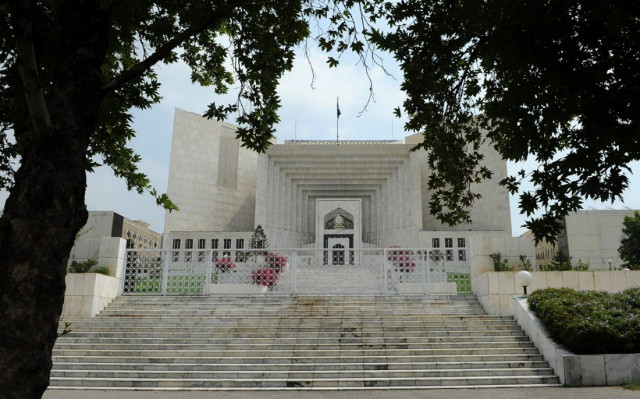Corporate trusts, pension funds liable to pay Zakat: SC
Plea from Pakistan Telecommunication Corporation Employees Trust rejected

PHOTO: AP
The three-judge bench of the apex court, headed by Chief Justice Mian Saqib Nisar, on Monday rejected a plea from the Pakistan Telecommunication Corporation Employees Trust challenging the Zakat deduction.
The Pakistan Telecommunication Corporation Employees Pension Fund had invested various amounts in banks and other schemes.
The Zakat and Ushr Department deducts Zakat under Section 3 the Zakat and Ushr Ordinance of 1980.
The appellant challenged such deductions through a constitutional petition before the Islamabad High Court on the ground that the appellant was not Sahib-e-Nisab and thus, could not be made subject to compulsory deduction of Zakat.
Rangers ask people to register complaints of forced Zakat collection
The writ petition was, however, dismissed.
The appellant’s intra-court appeal was also dismissed by a division bench of the high court vide an impugned judgment. On November 5, the SC admitted hearing of PTET employees.
After four years, the court conducted the hearing of the matter and announced its judgment last week.
According to the court order, the Pakistan Telecommunication Corporation Employees Pension Fund is a Sahib-e-Nisab and the pension fund is an asset owned and possessed by it, therefore, the appellant is liable to compulsory payment of Zakat under the Ordinance.
“This Court has held in various judgments that pension is not a bounty, but is a right acquired in consideration of past services. The right to pension is a well-earned right subject to fulfilment of conditions provided in the law.”
The court also observed that the trust was an independent and autonomous body, not wholly-owned, directly or indirectly, by the federal government.
‘AJK zakat dept provides over Rs250m every year’
The order stated that mere creation by a notification issued by the federal government under Section 44 of the Act did not mean that the trust was wholly-owned by the federal government. It could acquire and hold property, both moveable and immoveable, and could sue and be sued in its own name.
It also observed that the trust was managed by a board, free to take decisions by a simple majority, and just because half of its members were appointed by the federal government, “one cannot conclude that the trust is owned by the federal government”.
“For all its actions, it is neither required to obtain prior permission nor is it bound to get the same validated from the federal government, apart from the framing of rules for the management and conduct of business of the Trust in accordance with Section 44(9) of the Act.
“We find that this single factor is not sufficient to establish whole ownership of the federal government. Furthermore, as is clear from Section 45(1) of the Act, a pension fund was created, albeit by the federal government through a notification in the official gazette, and all assets of Pakistan Telecommunication Corporation (PTC) Employees Pension Fund created by a trust deed dated April 2, 1994.”
The court also rejected the argument of the counsel for the appellant that Zakat is payable on assets and not liabilities, and that the pension fund is entirely a liability.
“Accepting this contention would mean that all banks and financial institutions, which hold non-charitable funds and endowments, would also be exempt from Zakat (just because) such funds and endowments are liabilities held for depositor, account holder or beneficiary.
“This would be ludicrous. Therefore, we do not find any force in this argument which is hereby repelled. In fact, the balance sheet of the appellant reflects that upon investment of amounts in the Pension Fund, the appellant has earned a certain amount of income. This negates the argument that the pension fund is a liability.”
The order further stated: “To our mind, this prospect is misconceived. Zakat under the Ordinance is collected only once a year. If in one year, Zakat was deducted from the appellant, and subsequently an employee/ pensioner was determined to be entitled to pension and was made such payment from the pension fund, for next year when such pensioner holds and possesses his pension amount, if he fulfils conditions of Section 3 of the Ordinance and is a Sahib-e-Nisab, it is only he who would be liable to pay Zakat upon the amount held by him, and not the appellant which has ceased to hold and possess such amount. Therefore, there is no possibility of double taxation and this argument, too, is rejected.”



















COMMENTS
Comments are moderated and generally will be posted if they are on-topic and not abusive.
For more information, please see our Comments FAQ